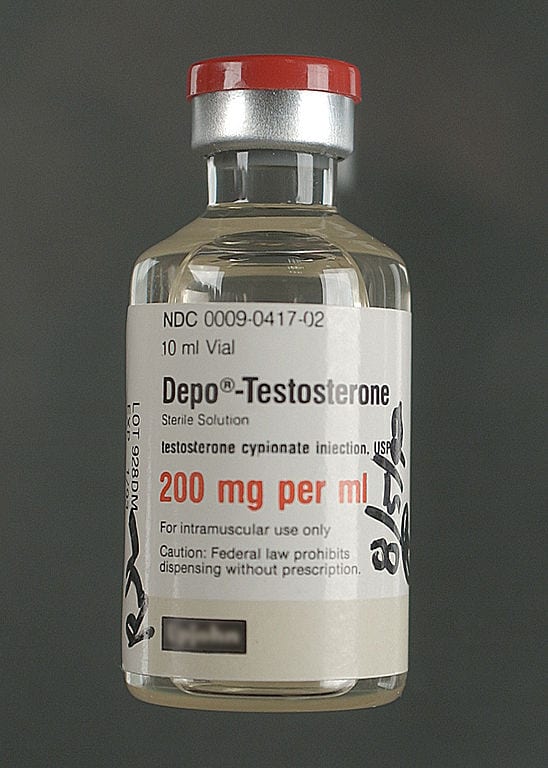Risk of Heart Attack Elevates With Testosterone Gels
You’ve seen the ads on television. With just a dab of testosterone (T) gel under one’s arm, men can have their hormone levels restored as well as their sex drive, muscles, energy, hair, whatever has declined as they age.
But a new study shows the practice of turning back time can be dangerous to some individuals in the form of an increased heart attack risk or non-fatal myocardial infarction (MI).
The drugs come in the form of an injection, a gel or a patch. Some of the brand names are Androderm, AndroGel, Axiron, Bio-T-Gel, Delatestryl, Sepo-Testosterone, Fortesta, Striant, Testim and Testopel. The risks include diabetes, high cholesterol, plaque buildup and artery blockage as well as obesity.
A January 2014 study, funded by the National Institutes of Health and published in the medical journal Plos One, found that using a testosterone medication by men age 65 and up increased the risk of heart attack as well as in men younger than age 65 who had some history of heart disease. There was a two-fold increase in the heart attack risk 90 days after beginning the prescription for ages 65 and older with the risk declining 91 to 180 days after the initial prescription, likely when the use of the drug declined. There was also a three-fold increase in heart incidents among younger men with a history of heart disease.

Can testosterone gels and patches increase your risk of having a heart attack?
Testosterone occurs naturally. The male hormone makes men grow into men as fetuses and maintains muscles, sexual drive and hair. Testosterone decreases in men as they age, anywhere from 30 to 40 percent. As a result men may experience a redistribution of body fat in the abdomen, hair loss, diminished intellectual capacity, depression, osteoporosis and libido loss. The changes have actually been referred to as male menopause or andropause.
A lack of testosterone or low levels is a condition called hypogonadism which can be diagnosed by drawing blood in the morning. According to one study (Carnegie) the incidents of hypogonadism has increased in men from 12 percent for men in their 50s to 49 percent for men 80 or older. The origin can be hypothalamic-pituitary in origin or testicular or a combination of the two.
The effect of testosterone on the body is to increase the number of red blood cells which make the blood thicker and more likely to coagulate, especially hard on narrowed arteries due to age, plaque buildup or the presence or disease.
A man facing the loss of his manhood is a powerful market and according to the Journal of the American Medical Association there were 5.3 million prescriptions written for testosterone treatments in 2011.
Share This


